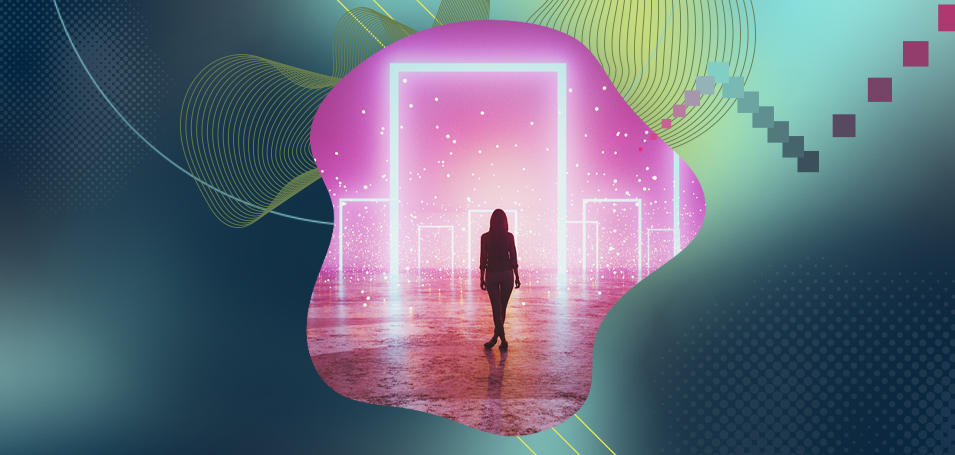While the second annual COGNITION conference is now in the rear-view mirror, we’re still buzzing from the event that brought together leaders from across the customer learning spectrum to learn, collaborate and share best practices.
This year, more than 500 attendees tuned in to learn and discuss what it takes to build customer-centric learning programs that drive loyalty, reduce customer churn and fuel revenue growth. Following are our top customer learning takeaways from COGNITION 2021:
- The Learning Management System (LMS) model is limited and cannot live up to the promise of customer learning. Customer learning management (CLM) is the next evolution in customer centricity.
CLM allows for building meaningful relationships with your customers to reduce churn, drive loyalty and impact your bottom line, without the limitations of LMS. “Training equals retaining,” as ZoomInfo’s Tom Studdert, VP of Customer Onboarding and Implementations, explained in his customer showcase, Growth and Retention: The Business Problem.
Organizations like Zoominfo that adopt CLM are better positioned to continuously grow and retain customers, as compared to those organizations that rely on traditional LMS models. That’s because LMS are largely one-and-done legacy systems that lack scalability, are traditionally employee-centric and lack the digital user experiences required by modern customer learners.
CLM, in contrast, comprises the customer learning software and services that can serve as a digital platform for learning and integrate with other systems in an organization’s tech stack. It puts the customer at the center, and then treats them as learners, instead of buyers or users. The result: a system that can grow with an organization and meet customers where they are and support learning at every stage of the customer journey.
- The Customer Learning Economy — the fast-growing market for customer learning software and services — is ushering in three major shifts in customer education, and organizations must take note and adapt, or risk being left behind.
As Dirk Braune, Area Vice President of Education Strategy, Development & Delivery at BMC Software GmbH, shared during a customer roundtable, these shifts brought on by the customer learning economy include:
– Moving from a vendor-centric model to a learner-centric model
– Looking at the entire lifecycle of customer learning
– Merging customer success services for a more holistic customer learning model
Overall, organizations should consider customer learning in terms of impact to customers and the impact to the company.
- Learning from anywhere — and on your own time — is the future of customer learning.
The future of customer learning means empowering people to learn at the right moment and right place, in the right context. During COGNITION, we announced the Thought Industries Customer Learning Cloud to deliver on this promise, providing a new platform driven by advances in content authoring, embedded learning, curated insights and open architecture. The platform aims to spur adoption of customer learning because it meets customers and organizations where they are, and provides a foundation from which organizations can scale and grow in the future.
What else might learning from anywhere, at any time entail? Bill Horzempa, HPE Education Services Global Delivery Manager at Hewlett Packard shared his thoughts in the Competing in the Customer Learning Economy roundtable, noting that accommodating customers’ desires to learn where and when they want to will mean more digital learner-as-a-service solutions that embrace and allow easy access to curated content and more on a subscription basis.
- Customer learning is a process, not an event.
In addition to giving customers the means to learn where and when they need to and want to, organizations must understand that learning is a process, with customers starting from all points on the spectrum. Recognizing this, we launched the Thought Industries Academy during COGNITION. It’s an on-demand center of excellence that gives customer learning professionals the education, research, tools and networking opportunities to help maximize the impact and value of their learning programs.
The Academy includes a maturity model roadmap for customer education programs, which reflects the reality that organizations are all at different points in their customer learning program journeys. The maturity model provides actionable recommendations for advancing performance, which Thought Industries’ VP of Learning Strategies Daniel Quick discussed in depth during his keynote. It’s all based in the reality of customer learning: it’s a journey that’s different for every organization, and a general roadmap can provide direction for learning and advancement.

To read more about COGNITION and access on-demand content from the event, please visit the Thought Industries COGNITION homepage. See you in 2022!


